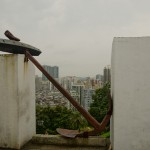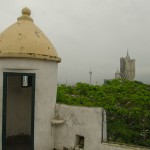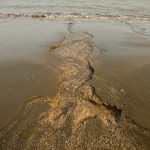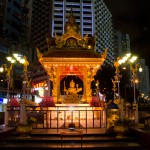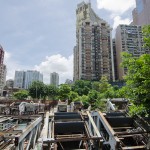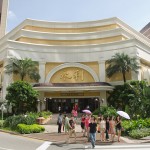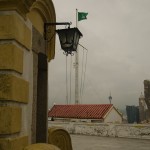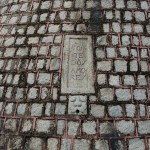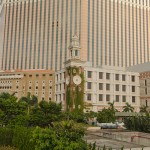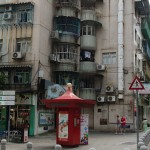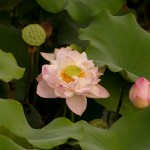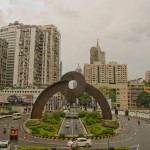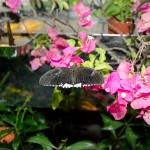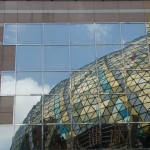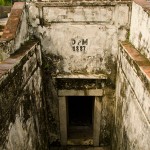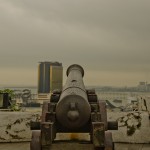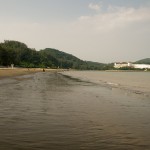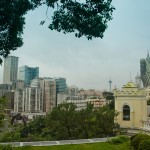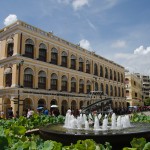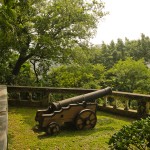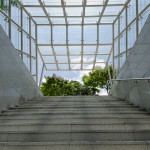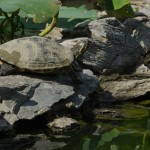Macau
Macau also spelled Macao, is on of the two administrative regions of the People’s Republic of China, the other is Hong Kong. Macau is on the side of the Pearl River Delta, opposite Hong Kong to the east. Bordered to Guangdong province to the north and facing then South Chinese Sea to the east and south. The economy is heavily dependent on gambling and tourisms, it is called Chinese Las Vegas too, but includes manufacturing too.
Macau was a former Portuguese colony, from the 16th century until 1999, when it was the last remaining European colony in China. On 20th December 1999 Portuguese sovereignty was transferred back to China. Macau operates with a high degree of autonomy until at least 2049, fifty years after the transfer. PRC Central People’s Government is responsible for the territory defense and foreign affairs, while Macau maintains its own legal system, police force, monetary system, custom policy, and immigration policy.
History
Before the Portuguese settled in the 16th century, Macau was known as Haojing (oyster Mirror). The name Macau is thought to be derived from the A- Ma Temple the Temple was build in 1448 dedicated to Matsu, the goddess of seafarers and fisherman. It is said that when the Portuguese sailors landed at the coast just outside the temple and asked the place for the name of this place the native replied Mandarin: Pinyin: Mage; Jyutping: Maal Gok3. The Portuguese then named the peninsula Macau.
The History of Macau traced back to the Qin Dynasty in 221-206 BC. When the region now called Macau came under the jurisdiction of Panyu country.
Under the Ming Dynasty 1368- 1644 AD fisherman started to migrate to Macau from Guangdong and the Fujian province.
In 1513 first Portuguese sailors anchored at Macau to land in China. It took the Portuguese until 1535 to obtain the right to do trading activities and keep the right to stay onshore. In 1557, the Portuguese established permanent settlement in Macau., paying an annual rent of 20 kg of silver. The Portuguese continued to pay the annual fee until 1863 in order to stay in Macau. On June 24, 1622 the Dutch attacked Macau in the battle of Macau, in the hope of turning it into a Dutch possession. The Portuguese repulsed the attack and the Dutch never tried to attack Macau again.
In 1928, after the Qing Dynasty had been overthrown followed the Xinhai Revolution.
When it was discovered the neutral Macau was planning to sell aviation fuel to Japan, aircraft from USS Enterprice bombed and strafed the hangar of the national Aviation Centre on 16th January 1945 to destroy the fuel. American Air raids on targets in Macau were also made on 25 February and 11June 1945. Following Portuguese Government protest, in 1950 the United States paid compensation to the Government of Portugal. Shortly after the overthrow of the Portuguese dictatorship in 1974 in Lisbon, the new Portuguese government terminated that it would relinquish all its overseas possessions. In 1976, Lisbon redefined Macau as a Chinese territory under Portuguese administration and granted it a large measure of administrative, financial, and economic autonomy. Three years later, Portugal and China agreed to regards Macau as a Chinese territory under (temporary) Portuguese administration. The Chinese and Portuguese government commenced negotiations of the question of Macau in June 1986. The two sides signed a Sino- Portuguese Joint Declaration the next year, making Macau a special administrative region (SAR) of China. The Chinese government assumed formal sovereignty over Macau on 20 December 1999. The economy since has continued to grow; the main growth areas are the tourism sector and gambling.
Geography
Macau is located 60 km southwest of Hong Kong and 145 km from Guangzhou. It has 41 km of coastline, and 310m of land with Guangdong. It consist of the Macau Peninsula itself and the island Taipa and Coloane, which are the west. It borders the Zhuhai special economic zone in Mainland China. The main border crossing between Macau and China is known as the Portas do Cerco (Barrier Gate) on the Macau side, and the Gongbei Port of Entry on the Zhauai side. Macau Peninsula was originally an island, but a connecting sandbar gradually turned into a narrow isthmus, thus changing Macau into a peninsula land. Alto de Coloane is the highest point in Macau, with an altitude of 170 meters.
Climate
Macau has a humid subtropical climate, with a average humidity of 80% up to 90%. Similar to much of South China, seasonal climate is influenced by the monsoons, and differences in temperature and humidity between summer and winter The average temperature of Macau is 23°C. July is the warmest month, with an average of 28°C, however the coolest month is January, with an average temperature of 14°C. Macau has annual rainfall of 2,120 mm in average.
In the summer season the hot climate is often followed by heavy rainfall, thunderstorms and occasional typhoons.
Economy
Macau’s economy is based on gambling and tourism. Other activities in Macau are export geared textiles and garment manufacturing, banking and other financial service.
Transport
In Macau traffic drives on the left. Macau has a well-established public transport network connecting to the Macau Peninsula, Cotai, Taipa Island and Coloane Island Buses and Taxis are the major transport modes in Macau.
The trishaw, is also available, is even so a good method for independent sightseeing through Macau.
Macau has one International Airport which is located in Taipa. Macau has two Ferry Terminal one is located in Taipa the second one is Inner Harbor Terminal in Macau, both terminal get served from Hong Kong 24 h a day.
Culture
Macau offers a mixture of the Chinese and Portuguese culture, which reflects in many daily situations such as religious traditions, festive events, and of curse the Macanese food, it shows a strong influence of the Portuguese kitchen. The biggest event of the year is the Macau Grand Prix in November, when the main roads get converted into a racetrack for Formula 1 racing cars. One other annual event is the Macau Art Festival in spring, the Macau International Marathon in early summer. A-Ma Temple, which honors the Goodness Matsu, is in full swing in April with many worshippers celebrating the A-Ma festival.
External link
Travel
Macau Government Tourist Office
Macau City Guide
Macau yearbook
Accommodation in Macau
Macau Grand Prix
I refer to following external links
Wikipedia
My travel experience:
After I have traveled for more than 11h from Auckland to Hong Kong, my first impression of Macau was the weather and the comfortable climate, with a light breeze from the sea. After I spend nearly the whole day in the sun, I didn’t get sun burned, totally forgot to use any sun block/ sun cream. The temperature was around 35C in the sun, for the whole time I spent in Macau it didn’t have a single day of rain wich was great. Macau is a really good place for shopping, there are many of shopping malls located all over the city, every famous brand can be found. For a reasonable price. When I went out for food, mostly I went to the local restaurants in Taipa and never met a poor experience, with the friendliness of the staff and the food quality, one of my favorite places was E.S.Kimo in Taipa it is very packed with local people, probably you have to share one table with them, it is very good to get in contact with them. Very important before you go out for food learn how to use chop sticks. English is widely spoken. To travel to Macau use the boat which operates directly from the Airport or Ferry Building in Hong Kong.The personality of the people is fantastic they are very helpful if you ask for direction for a place, or you get lost somewhere, and they keep the word what was said. I know already that I will return to this beautiful place in the next future. I have visited Macau for my 2nd time in May 2013, this time I went to more historic places than by my first visit, Black beach is quiet nice place to visit, black sand is not to much common, the little BBQ stands sell freshly cooked flavors and refreshments.


































